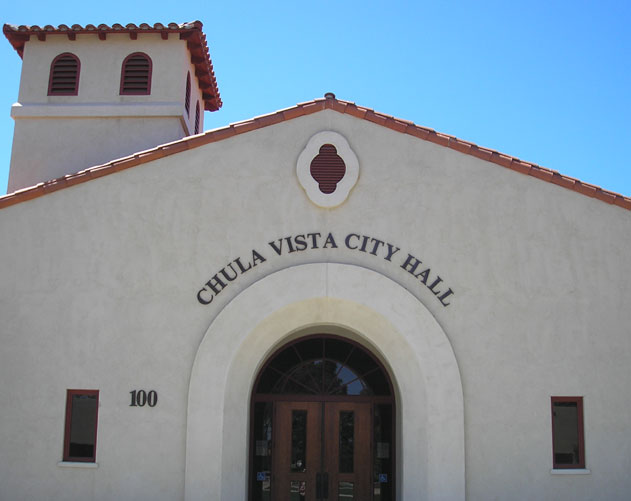In line with a state law passed Oct. 9, the City of Chula Vista will eliminate two requirements for accessory dwelling units, or granny flats, come Jan. 1, 2020, effectively getting rid of development impact fees for ADUs smaller than 750 sq. feet and no longer requiring the property owner to live on the lot where the ADU is located, until 2025.
The state defines an ADU as an additional living space on single-family lots that have a separate kitchen, bathroom and exterior access independent of the primary residence. Development impact fees go toward expanding or upgrading infrastructure, according to the city of Chula Vista’s website.
According to Senate Floor Analyses, the purpose of SB 13 is to increase the supply of affordable housing by relaxing requirements that impede the construction and permitting process for ADU’s in an effort to move towards resolving the California housing crisis — and it doesn’t give cities much leeway.
Though Chula Vista City Council voted unanimously to eliminate these requirements on Nov. 5 with the absence of Councilman Stephen Padilla, the newly enacted statewide law requires them to do so before Jan. 1. Mayor Mary Salas voiced concern over local control limitations.
“Personally, I don’t think it’s good public policy to remove the owner occupancy because I think that in the long term it could just encourage just investors to be building, doing these ADUs… It’s something that is imposed on us as a city and we don’t have a lot of latitude on it,” Salas said.
Before SB 13 was passed, the city of Chula Vista allowed four exceptions to the owner occupancy requirement for ADUs for up to five years.
An exception could be made if the owner was required to live in an assisted living center due to their health, if an owner was required to live elsewhere due to employment or military service, if an owner needed to live elsewhere to take care of an immediate family member or if the ADU was acquired as a result of a settlement of an estate.
Starting Jan. 1, owners won’t need to fall into any of these categories if they want to live on a different property where their ADU is not located.
In addition to this change and prohibiting development impact fees for ADUs smaller than 750 sq. ft., SB 13 requires impact fees for ADUs bigger than 750 sq. ft. to be proportionate to the size of the primary residence, along with other changes.
At the city council meeting on Nov. 5, Chula Vista resident and Pacific Southwest Association of Realtors President Robert Cromer said the purpose of the SB 13 is important to consider, and these changes will help in the long run.
“We gotta understand what the intent of this was done for, and that was really to allow for more affordable housing so whether it’s from rent or purchasing, our kids are not going to be able to live in Chula Vista or San Diego when we have so few of housing,” Cromer said.
Another Chula Vista resident, Fred Cowles, said he understands that there needs to be affordable housing options, but believes in owner occupancy because there needs to be oversight of tenants.
“If you just allow an R-1 zone to turn into an R-2 zone because that [will] happen, then all the hard work that people have done their lives to own a house in an R-1 zoned property, it means nothing. You can get several homes or duplexes, it turns into a duplex is what it does,” Cowles said.
He added that noise and parking are likely to become issues in neighborhoods with ADUs where the owner is not present. An R-1 zone is defined as a single-family residence zone, whereas an R-2 zone is defined as a one and two family zone.
Currently, ADUs are permitted in any zone in Chula Vista as long as they are built on the property of a single-family home. They are not permitted on lots with apartments, condos, townhomes or similar multifamily developments.
At the city council meeting Nov. 5, Assistant Director of Development Services for the City of Chula Vista Tiffany Allen presented options to city council for providing refunds to residents who have already paid development impact fees for their ADUs.
City Council directed staff to initiate refunds for ADU permits that were issued on or after Jan. 1, 2018, amounting to approximately $250,000 in refunds, according to Allen.
For ADUs 750 sq. ft. or larger, the city will be partially refunding development impact fees to bring the charges down to the new proportionate charges outlined in SB 13. For ADUs smaller than 750 sq. ft., the development impact fee will be refunded in full.
Allen said Development Services Department staff is currently reaching out to applicants that are in the process to advise them of the changes in law, and compiling a refund list.
She added that they anticipate issuing refunds for at least 24 ADUs, and aim to start doing so within the next 30 days.

